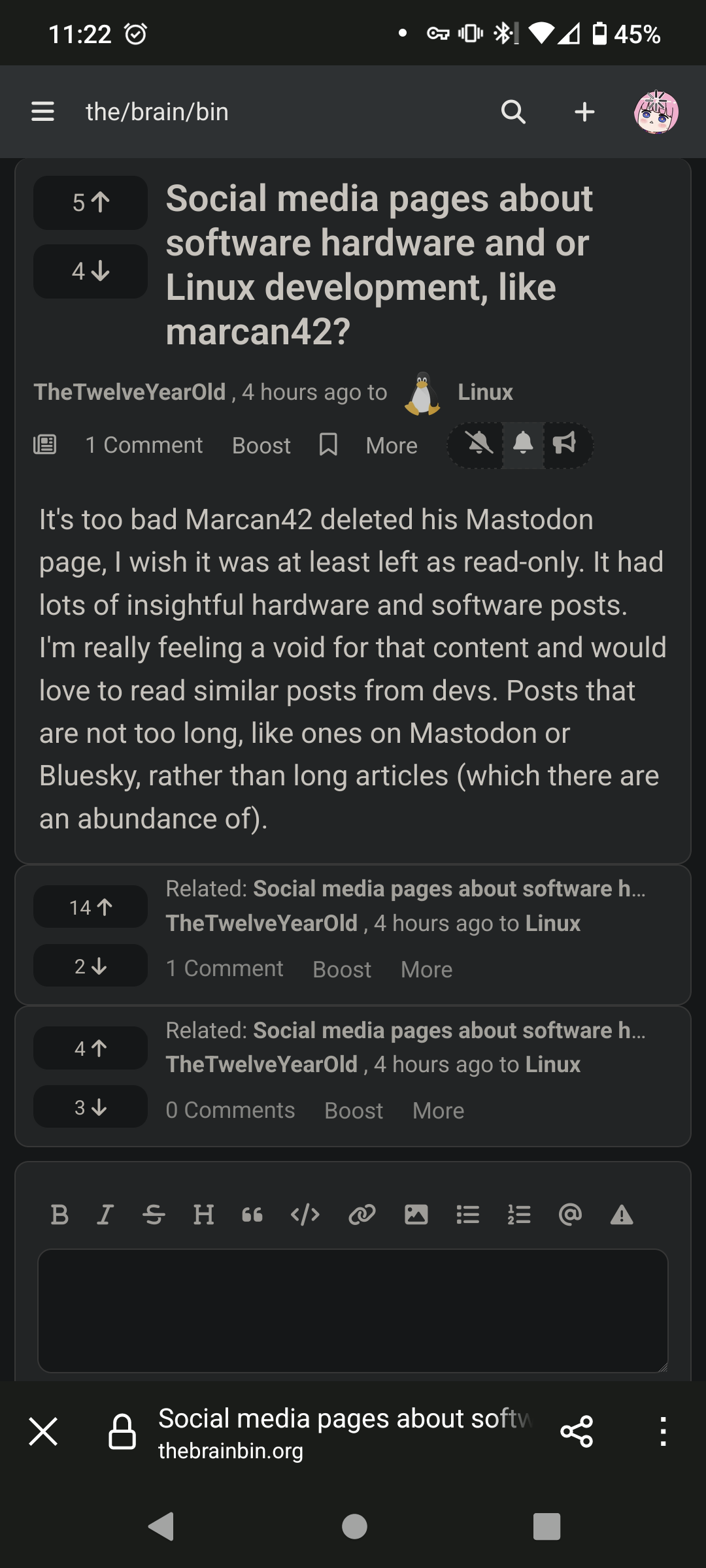

KDE’s Dolphin + Konsole’s integration to Dolphin is great for seamlessly managing files with an UI and terminal hybrid.
Though closed source (overly dramatic music plays), the text editor Sublime Text works great, and at least with major version 3 (last I checked it was in version 4), it can be converted to AppImage without major issues (at worst, paths with spaces have issues).
Firejail is great for starting specific programs offline.
Newsboat is the best RSS feed reader I could find for Linux, specifically due to, with its inbuilt macros, I can set it up to open in new tabs several posts from a comically large amount of feeds.






You press F4 and a window within Dolphin comes up, already “cd-ed” to the current directory, the terminal working as Linux’s default bash terminal: https://media.ani.social/01/97/74/79/47/67/7d/23/b3/7d/49e623d62d04.webp
Seems like a simple thing? Indeed. But it’s a small detail that saves a lot of time in the long run for helping with the workflow. No need to switch back and forth between two different windows.